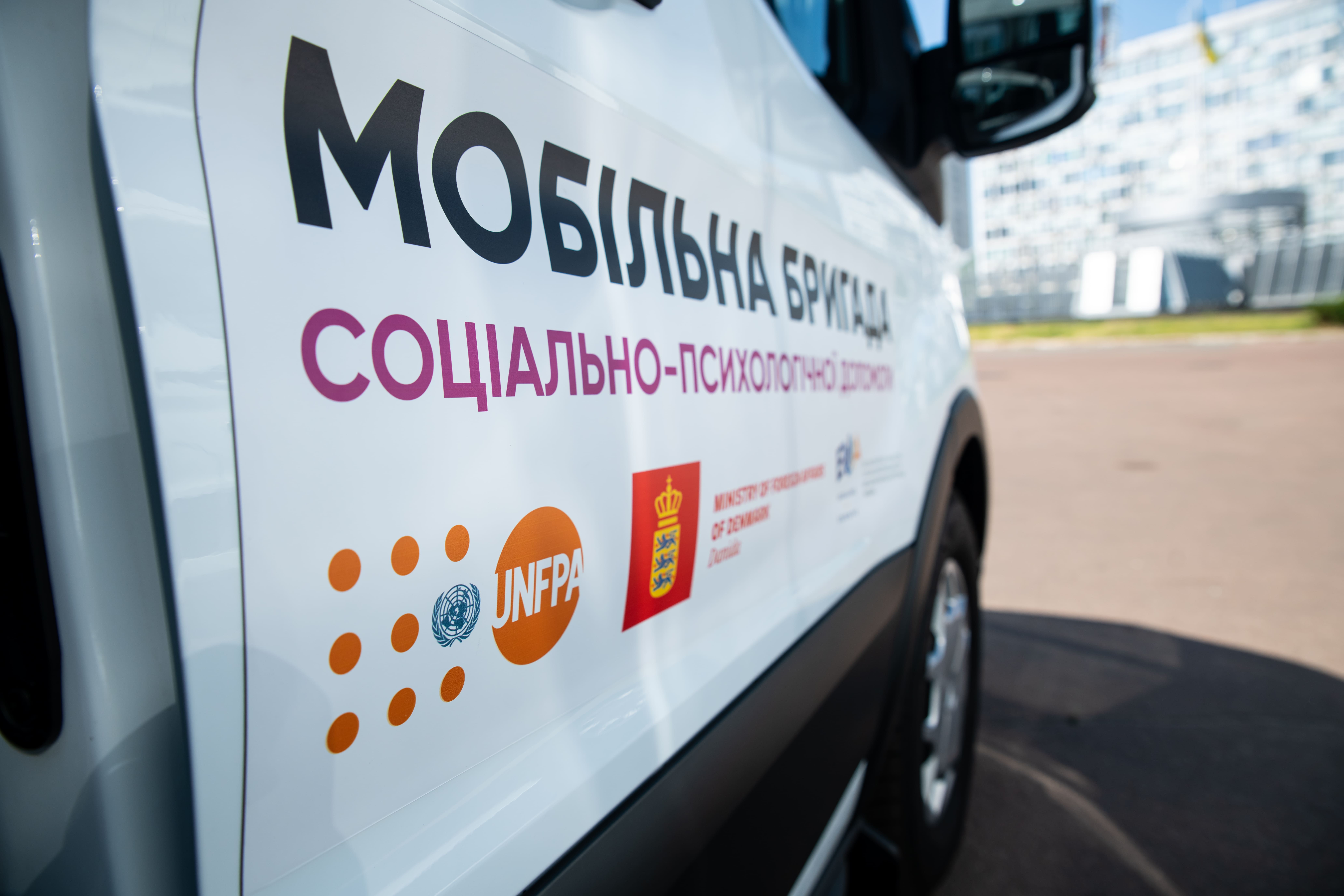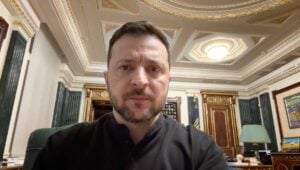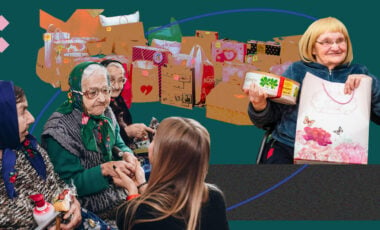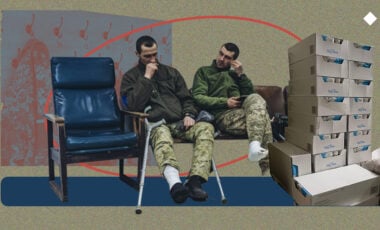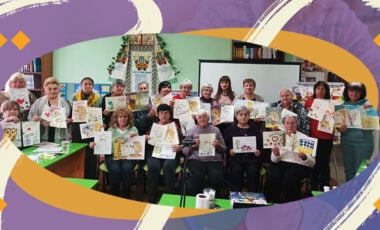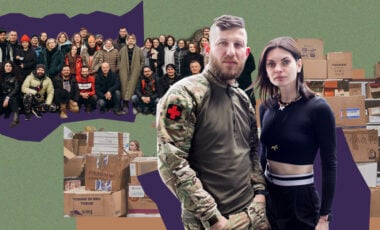Denmark donated 15 inclusive cars to help survivors of gender-based violence
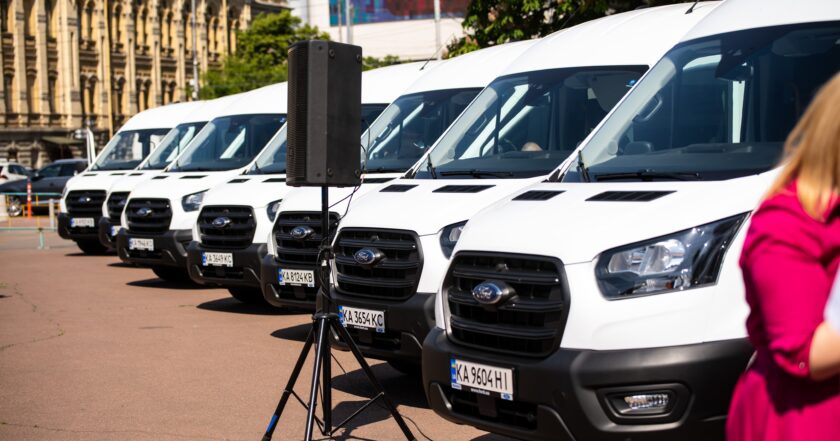
The United Nations Population Fund (UNFPA) handed over 15 inclusive vehicles provided by the Government of Denmark, with the support of the Government of Ukraine and local partners, during an event in Kyiv. The vehicles will help UNFPA's mobile teams of psychosocial support continue to help survivors of gender-based violence (GBV) and domestic violence, including people with disabilities, in 13 regions of the country.
"As Denmark's ambassador, I am proud that Denmark is donating 15 vehicles to help survivors of gender-based violence, including people with disabilities, in Ukraine. Denmark is committed to supporting survivors of gender-based violence, and we hope that these vehicles will provide a much-needed lifeline for those who may feel isolated or alone. We strongly believe in the importance of inclusivity and accessibility to everyone, and we are honored to partner with UNFPA and Ukraine in this critical endeavor", – said Ole Egberg Mikkelsen, Ambassador of Denmark to Ukraine.
With the start of a full-scale invasion in February 2022 and a high number of internally displaced persons (IDPs), the issues of response and preventing gender-based violence (GBV) have become particularly relevant and necessary. Therefore, in April 2022, the first mobile teams psychosocial support were launched.
"Constant shelling, moving to foreign cities in search of shelter is a huge stress. It reveals all the problems that existed before, intensifies their scale, creates new dimensions of violence. But despite the war, the state continues to strengthen the mechanisms of combating domestic and any other type of violence. We are grateful to the Government of Denmark, which provided UNFPA with 15 inclusive cars. These vehicles will help mobile teams to strengthen support for citizens affected by violence," said Olha Stefanishyna, Deputy Prime Minister for European and Euro-Atlantic Integration of Ukraine.
Currently, 100 UNFPA mobile teams operate throughout Ukraine, providing free social and psychological assistance to GBV survivors and, if necessary, referring them to other specialized services. The mobile teams also support people in remote and hard-to-reach areas, near the frontline in Eastern and Southern Ukraine, and transport survivors of domestic violence and GBV to receive assistance and services.
The mobile teams also conduct outreach activities, including providing information on rights, available services, and confidential and survivor-oriented support options. As of May 2023, mobile teams had provided over 100,000 services, including for cases of domestic and gender-based violence.
"At UNFPA, we work to ensure that women and girls have access to quality, free and safe services. We are grateful to the Danish government, the Office of the Deputy Prime Minister for European and Euro-Atlantic Integration, the Ministry of Social Policy, and local authorities and civil society organizations for their commitment, their involvement and unwavering support to our work. With these 15 "inclusive" vehicles, accesible to people with disabilities, psychosocial specialists will be able to provide quality assistance on the ground to people with and without disabilities, ensuring no one is left behind", – said Jaime Nadal, UNFPA Representative in Ukraine.
UNFPA mobile teams work in coordination with the Office of the Vice Prime Minister for European and Euro-Atlantic Integration and the Ministry of Social Policy of Ukraine. The Government of Denmark supports UNFPA mobile teams and other specialized services for GBV survivors, services aimed at supporting sexual and reproductive health in Ukraine, as well as initiatives aimed at supporting youth in Ukraine.
It is estimated that 15% of the world's population has some form of disability. In Ukraine, according to the Ministry of Social Policy, in 2020, 2.7 million people had the status of people with disabilities. Today, this figure may be much higher, as the war has increased the number of people with long-term injuries.
According to the United Nations Office for the Coordination of Humanitarian Affairs (UN OCHA), 20% of internally displaced persons are people with disabilities. At the same time, previously available services for people with disabilities may be inaccessible or destroyed. Therefore, it is crucial to work to ensure that people with disabilities have access to assistance, and mobile teams are exactly the kind of service for survivors of violence.
As of mid-May, the mobile teams had provided more than 100,000 services, including those related to cases of violence.
Among the clients who experienced violence (which is more than 23,000 people), 18% are people with disabilities. During the appeals, most cases of psychological violence were identified. At the same time, people with disabilities are 4% more likely to experience economic violence than other survivors.
In general, the percentage of cases of violence against people with disabilities by region corresponds to the overall ratio of cases of violence. However, the largest number of cases is recorded in Mykolaiv, Dnipro, Ivano-Frankivsk, Lviv and Volyn regions. The vehicles will be sent to 13 regions, including these regions as well.
Cars were donated with the support of the Government of Denmark. The mobile teams are supported by UNFPA, the United Nations Population Fund, in coordination with the Office of the Vice Prime Minister for European and Euro-Atlantic Integration and the Ministry of Social Policy of Ukraine.
The services of the mobile teams are provided thanks to the financial support of the governments of the United Kingdom, Canada, the United States, Denmark, Finland, the Humanitarian Fund for Ukraine (UHF).
For reference
Cases of domestic and gender-based violence increase during wartime. Women are particularly affected by it. According to available information, every fifth woman is a victim of one of the forms of violence.


